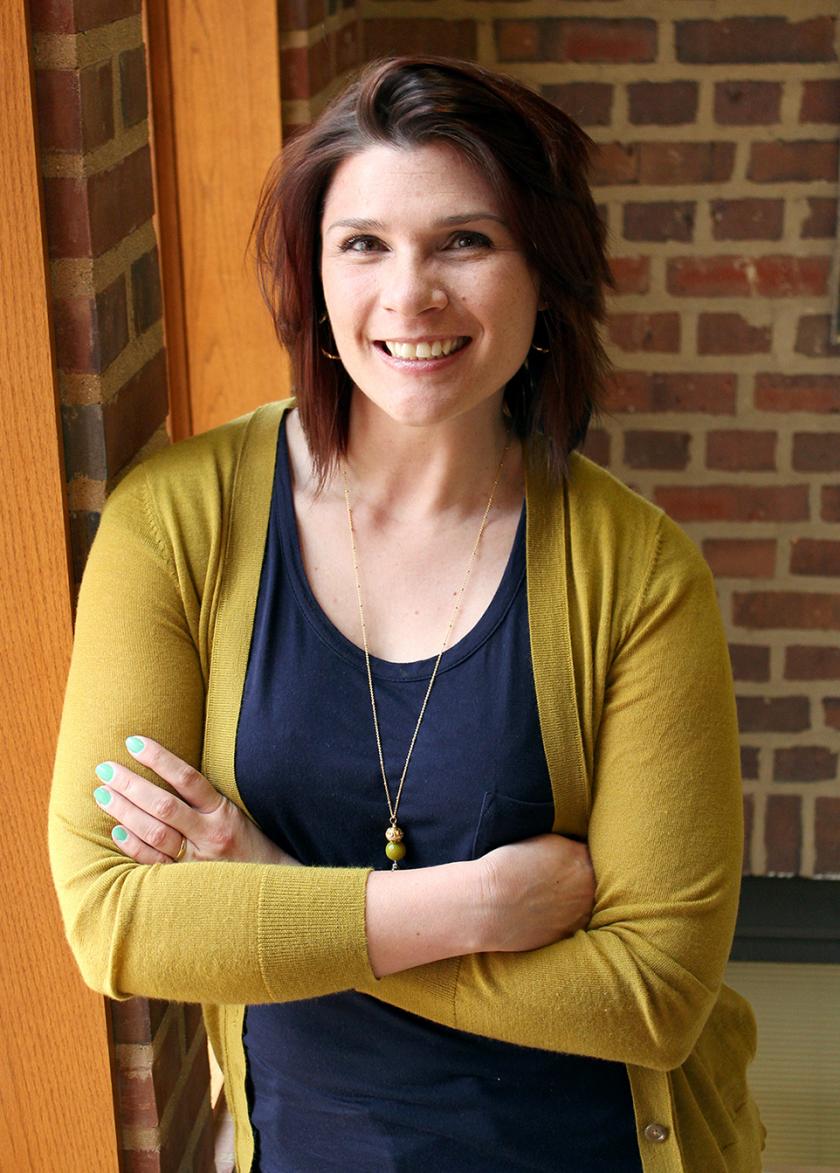
 Looking for new ways to engage in intellectual exploration and create practical applications that solve socio-technical issues, Kirstin Phelps found that GSLIS could provide both the challenges and support she was hoping for in a degree program. Phelps is a first-year PhD student with a background in communications and education.
Looking for new ways to engage in intellectual exploration and create practical applications that solve socio-technical issues, Kirstin Phelps found that GSLIS could provide both the challenges and support she was hoping for in a degree program. Phelps is a first-year PhD student with a background in communications and education.
Why did you decide to pursue an LIS degree?
When I started considering degree programs, I originally was looking at fields like sociology or psychology. However, none focused on the intersection of people, technology, and information to the degree that I was interested in, and that LIS provides. I appreciate the critical and interdisciplinary perspective that LIS scholars bring to considering social and technical aspects of information. Additionally, I feel that LIS is concerned with meaningful topics that not only have intellectual value, but are also relevant to society.
Why did you choose GSLIS?
Aside from the strong rankings of the school, I was really won over by the ways people spoke about GSLIS. I talked to a number of individuals about the program—current students, alumni, and faculty—in order to get a sense of what GSLIS would provide in comparison to other fields I was considering. As someone who had been in the workforce for the past 8 years and was choosing to go back to school, I really wanted to find a challenging program that also had engaged people and a supportive environment. Additionally, I liked that the faculty at GSLIS reflected a variety of disciplines. So I chose GSLIS because it had all the things I was looking for: a collaborative environment, supportive faculty, and high standards of rigor.
What particular LIS topics interest you most?
My academic background is in communication and education, and I worked professionally teaching and developing leadership competencies in college students before coming to GSLIS. Due to these experiences, I am most interested in the socio-technical aspects of how individuals and groups engage with technology and their information behaviors, specifically in online environments. Within LIS, social and community informatics, information behavior, as well as computer-supported cooperative work and human-computer interaction are the most interesting topics so far, but I'm sure I will find others soon!
What surprises you about the field of LIS?
The scope and breadth of research within the field. A glance through the faculty profiles reflects the range of disciplinary backgrounds and research questions that are pursued in LIS. I think such a varied field is exhilarating—it allows for opportunities to explore a number of interesting questions that are relevant to society in ways that reflect the complexity of life.
What do you do outside of class?
Enjoy myself as much as possible! I love traveling, and thankfully there are a ton of conferences that I am able to attend through school that supplement my personal trips. I also enjoy food—eating it, cooking it, baking it—so I like to try out new recipes or restaurants with friends. Thankfully Champaign-Urbana has a number of great concert and theatre venues, which I try to take advantage of as much as possible. Last year I became a co-op member at the Art Theater in downtown Champaign, which shows an amazing variety of films and movies. The late-night specials are particularly exciting; I can get my fix of cheesy sci–fi or 80s classics on the big screen. I also try to attend plays at Krannert or the Station Theatre, since they frequently bring in really outstanding acts. Outside of these, I like to stay active. I'm picking up rock climbing and also play volleyball through Champaign Park District.
What career plans or goals do you have?
Ultimately I would like to continue the LIS legacy by teaching in a university setting. However, I also like the prospect of contributing a LIS perspective to questions within a research laboratory or industry R&D department. Aside from a specific role or title, I know I want to continue to engage in intellectual exploration and provide practical applications to socio-technical issues that face society and our ability to engage with others in meaningful ways. Wherever happens to let me do this is where I hope to be in the future.